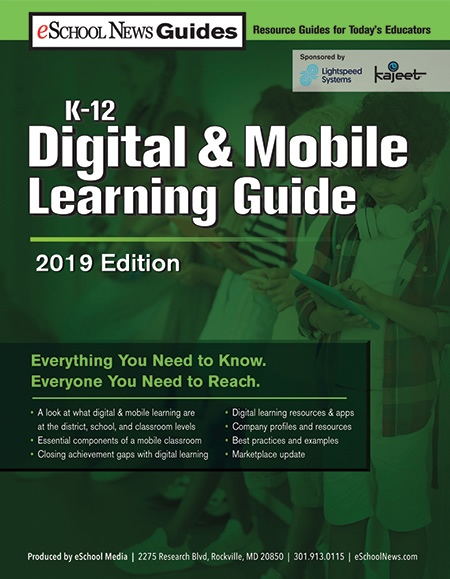Professional learning communities (PLCs) offer a collaborative approach to professional development in which small groups of educators meet regularly to reflect on instructional planning and practice, share expertise and insights from their teaching experiences, and engage in collective problem-solving.
At the heart of effective PLCs are inquiry and reflection focused on standards-based instruction, engaging discussions on lessons that support students as they access grade-level curriculum, and exploring ways to provide students with means for expression.
Related content: 5 ways our centralized LMS supports UDL
PLCs are often beneficial for educators working towards similar goals, such as improving student outcomes through the implementation of a new curriculum, program, or framework. One such framework is Universal Design for Learning (UDL).
UDL is a standards-based framework for inclusive education that aims to eliminate barriers to learning and optimize each individual’s opportunity to learn. The framework provides guidelines for educators to offer multiple means of engagement, multiple means of representation, and multiple means of action and expression to equalize the playing field for all learners and to eliminate inequities in the classroom. UDL recognizes that a one-size-fits-all curriculum doesn’t meet the needs of all students.
Related Content:
eSchool News Digital & Mobile Learning Guide
The eSchool News Digital & Mobile Learning Guide is here! It features strategies to help you effectively use digital and mobile learning resources, along with tips to support digital and mobile learning initiatives. A new eSchool News Guide will launch each month–don’t miss a single one!
UDL’s overarching principles empower students to self-differentiate their learning as they become purposeful, resourceful, and goal-directed problem solvers. These learners are referred to in the UDL framework as “expert learners.” UDL Theory and Practice, a text written by two of the founders of CAST, notes, “developing expertise in anything is always a process of continuous learning—practice, adjustment, and refinement. In the context of UDL, we focus on learning expertise: the lifelong process of becoming ever more motivated, knowledgeable, and skillful” (Meyer, Rose, & Gordon, 2014, p.15). This is true for both students and educators.
Checkpoint 8.3 of the UDL Guidelines encourages educators to “foster community and collaboration.” Without community and collaboration, it can be difficult to sustain effort and persistence, especially when things get challenging. The PLC helps educators build community with one another and work towards shared goals and problem solve with each other when challenges arise. Because of this, we argue that PLCs, particularly those using the principles of UDL as the foundation, have the potential to increase expert teaching and learning. By optimizing expert learning and focusing on eliminating the barriers that prevent all students from learning, groups of educators can foster their own growth and continuous improvement.
The UDL PLC structure promotes a continued professional learning opportunity for teachers to plan standards-based units of instruction, incorporate student engagement and choice, discuss applied practices, review student work/data, and offer each other feedback using a common framework that is endorsed in federal legislation, the Every Student Succeeds Act (ESSA, 2015). When participating in PLCs, educators generally examine four key questions:
- What do we expect our students to learn?
- How will we know they are learning?
- How will we respond when they don’t learn?
- How will we respond if they already know it?
These four questions provide a strong foundation for exploration and growth among educators, but have the potential to lead to “one-size-fits-all” thinking. For example, when discussing, “How will we know they are learning?” educators may create standardized assessments that prevent some students from sharing what they know. To prevent more traditional pedagogical thinking, we propose the following revisions to the questions to focus more on universal design.
- What do we expect our students to learn and why is it important?
- How can we design flexible assessments so there will be multiple options for our students to demonstrate they are learning?
- If students do not learn, what potential barriers exist that can be eliminated through thoughtful design?
- If students do learn, how will we provide options and choices for students to optimize challenge?
Although these questions provide a starting point for the UDL PLC, offering options and choices is only skimming the surface of full-scaled UDL implementation. When UDL is implemented effectively, it results in expert learners: purposeful and motivated, resourceful and knowledgeable, strategic and goal directed students. UDL is about self-differentiation and educators in a PLC have an opportunity to examine student learning through that lens.
There are two tools we recommend that PLCs can use to support their reflection and learning process. The first is the UDL Progression Rubric (Novak & Rodriguez, 2018) to help educators self-assess, monitor progress, and set goals for continuous improvement. Another tool is the UDL flowchart, a visual that helps educators PLCs think about potential barriers in lesson design that prevent students from learning in ways that are relevant, authentic, meaningful, linguistically appropriate. and culturally sustaining.
UDL isn’t a framework you can implement overnight. It takes time, patience, and continued practice to eliminate academic, behavioral, and social-emotional barriers that prevent all students from learning at high levels. Even the most experienced teachers can sometimes struggle with universally designing learning experiences which is why the PLC structure can optimize community and a shared responsibility for implementing the UDL framework.
References
DuFour, R. (2004). What is a Professional Learning Community? Schools as Learning Communities, 61 (8), 6-11.
Dufour, R. (2009) Professional Learning Communities: The Key to Improved Teaching and Learning
https://www.advanc-ed.org/source/professional-learning-communities-key-improved-teaching-and-learning
- 3 ways to avoid summer learning loss - April 19, 2024
- High school students say AI will change the workforce - April 18, 2024
- Motivating students using the Self-Determination Theory - April 17, 2024



